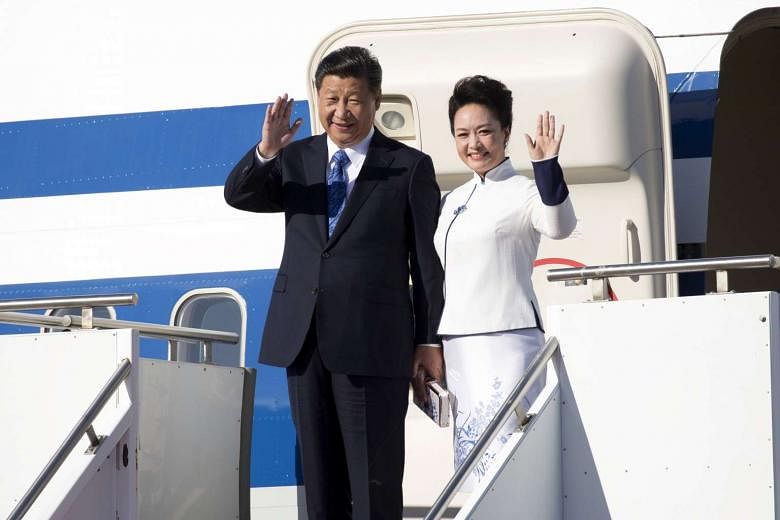Beijing does not engage in hacking nor does it support organisations that do so, said Chinese President Xi Jinping in Seattle on Tuesday (Sept 22), as he began his week-long visit with a speech where he sought to rewrite the negative narrative about the his country that has developed in the United States in recent years.
Speaking to American business leaders and other dignitaries at a dinner organised by the National Committee on US-China Relations and the US-China Business Council, Mr Xi presented China as a country committed to reform, the rule of law and one with a purely defensive military policy.
He said, for instance, that China was a "strong defender of cyber security", noting that Beijing was itself the victim of hacking.
He also said rejected the idea that China was embarking on an expansionist foreign policy given its posture in the South China Sea.
"Bellicosity will lead to ruin," he said, adding that regardless of however much the military grows, "the Chinese will never seek hegemony or seek expansion".
On the matter of China's devaluation of its currency - another irritant in the diplomatic ties between the US and China - Mr Xi said that Beijing has abandoned that policy.
"There is no basis for continuing the depreciation of the renminbi. We will persist with reform… we are against competitive depreciation, and we will not devalue to boost exports," he said.
Mr Xi also stressed that the recent turmoil in the Chinese stock market will not distract the government from its reform programme, explaining that it had intervened in the crash only to prevent panic.
Multiple times throughout the 40-minute speech, he stressed that China wanted to work with other nations, on a wide range of issues from fighting corruption to promoting development.
With the US, Mr Xi said his priority was to continue working together to achieve the "new model of great power relations", a concept he first raised in 2013 during a summit with US President Barack Obama in Sunnylands.
The Chinese president stressed that one of the key ways to achieve that new model was for the US and China to "read each other's strategic interests correctly" and not be swayed by bias or mistrust.
He told the audience that the primary interest of any Chinese leader at this time is simply to improve the lives of the Chinese people. He also noted that though the country has become the second-largest economy in the world, it is also the world's largest developing nation.
After spending two days in Seattle - a state with significant trade ties with China - Mr Xi will head for the US capital, where his itinerary includes a black-tie state dinner with Mr Obama.
The visit comes at a time when there has been growing friction between the two sides over the issue of cybersecurity, with the US threatening to impose sanctions on Chinese companies that have been found to have stolen commercial secrets from US companies.
Both sides are said to be in talks on a cyber "arms deal" that would involve committing not to engage in peacetime cyber attacks against each other, although senior White House officials on Tuesday sought to play down expectations that an agreement will indeed be reached during the visit.







